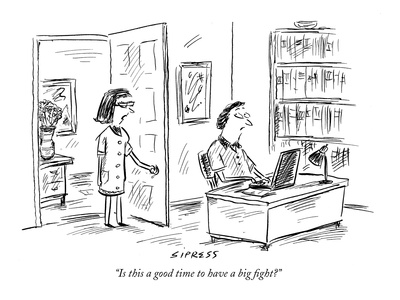Criticism doesn't ever have to be a "bad" thing; you can always make a choice.
In the example I gave concerning my work, criticism was essential to producing a film that would win awards and be revered by audiences everywhere; talented film supervisors needed to see their vision conveyed on the screen and that required "convincing" the many craftspeople who worked on their teams that doing things the way they envisioned was the right thing, and that other ways might not be as well received. Maybe the work would turn out "better" or "worse" but it is the job of someone in charge of a team to take responsibility for that choice, and correct any opinions that conflict with this vision through suggestions. "Don't do it that way, do it this way, because I believe it's better and I'm in the position I am because I know what I'm talking about, trust that."
Outside of work or education, occasionally a friend or acquaintance will choose to offer up an opinion that may or may not be welcomed. You may find the comment unnecessary or maybe even unpleasant...but it doesn't mean the criticism has value. It is, again, just an opinion.
An example: Let's assume your hair is brown and I tell you I think people, like you, with green hair, should change colors. Would you feel bad about what I said? Probably you'd laugh (or tell me to get new glasses). But you wouldn't feel bad about the comment because there was nothing in it that had anything to do with you personally.
Now, what if you really DID have green hair and I criticized it? Perhaps you had tried a new hair dye you were hoping would work and you weren't sure if you liked it or not. Maybe green is your natural color and you were always teased about it as a kid. In both cases you may feel there's a modicum of truth to my insult and internalize it, and this can make you feel bad.
It might also depend on the way in which the critique is expressed; often I'll take someone's criticism and suggest to the person offering it there might have been a more constructive way to express this personal opinion.
The key is paying attention to what the person criticizing you is saying. You never, EVER have to feel bad about someone voicing an opinion about something you do, are or believe. You always have the option to respect your own opinions and believe in their validity. In the case of work, education or your parent/guardian/mentor/partner you may not be able to defy the opinion of the person criticizing you, but you definitely don't have to feel that just because that person believes he's "right" it makes you "wrong." An essential part of being good at taking criticism is to understand that, if another person does not share your beliefs or opinions it in no way has to attack your own inner core.
If a teacher suggests a student has misunderstood an assignment the criticism is not, "and that makes you bad person;" it is actually a suggestion for improvement. This can be followed through to just about any criticism we get in our lives: if a person criticizes our looks, our values, our interests or anything else about us, we have the option to take the criticism or leave it, and by doing so we take control of how we feel about the critique, and our associated reactions.
It takes a little work to get used to doing this if you've spent your life internalizing criticism, and may even require working with some form of counselor to patch up old, undesirable habits and turn them into more healthy ones.
But I believe you CAN take any criticism offered and create something out of it that makes you a better person, if you try. Why not think about it, and start today?









 Tips To Help You Stay On A Fitness Routineon 07/25/2013
Tips To Help You Stay On A Fitness Routineon 07/25/2013
 Tips To Look Out For In A New Relationshipon 07/24/2013
Tips To Look Out For In A New Relationshipon 07/24/2013
 Four Stupid Movieson 07/24/2013
Four Stupid Movieson 07/24/2013
 Five Stupid Songson 07/21/2013
Five Stupid Songson 07/21/2013



Comments
Yes...there's a real art to it isn't there...when supervising I've actually been accused of not being critical ENOUGH, ha! :)
I think criticism is necessary but some people are just so much better at giving it effectively than others. I admit i find it hard to take sometimes. If it's helpful though, I don't mind as much!
Thanks, guys! Frugalrvers, great point and that's what started me wanting to write an article about it in the first place, AbbyFitz, that's how I felt after I FINISHED the article and had to revise my original idea. And thanks for your last comment, someone had to say it ;)
Very good article. I think society has shifted towards criticism being a bad thing. Everything has to be politically correct. Also, criticizing someone is seen as disrespect to a person. Proper criticism can make you a better whatever you are, writer, artist, teacher, et cetera. Most people nowadays just need to put on their big girl panties, learn from it, deal with it, and move on lol
Outside of the professional world (and probably in it, too), I think criticism has taken on a life of its own in the never ending effort of modern society to "keep up with the Joneses." Perhaps it is dished with a smile or pat on the shoulder, but the endless drive to tear others down, in my opinion, has gotten out of hand in our society. Totally agree with your article, just saying it is used as an ego tool more and more, in my observation. Great article...love ALL of your articles, by the way!
Thanks for the comment...yes, EXACTLY, couldn't agree more!
Criticism is part of my business too. I have to deal with young, inexperienced writers who love to write, but have no clue how to construct a story. They don't know anything about characters, settings, tension, plots... They just like writing and - trust me on this one - the don't have a problem to find few friends who will tell them their writing is really great.
Then they come to me and I have to tell them the truth. Some of them take it as offense, some become really angry at me, but few are able to take step back and start learning. And after a while a certain percent of these can award me with a good story.
It is not easy to be criticized and it is not easy to criticize. But in rare cases this can pan out as win-win.
Thank you! Yes, it's a rather hot topic with some of my friends at the moment, that's for sure... :)
Very timely! Seems like there is a lot of stuff getting dished out. How to deal with it, without losing one's mind. Thanks!